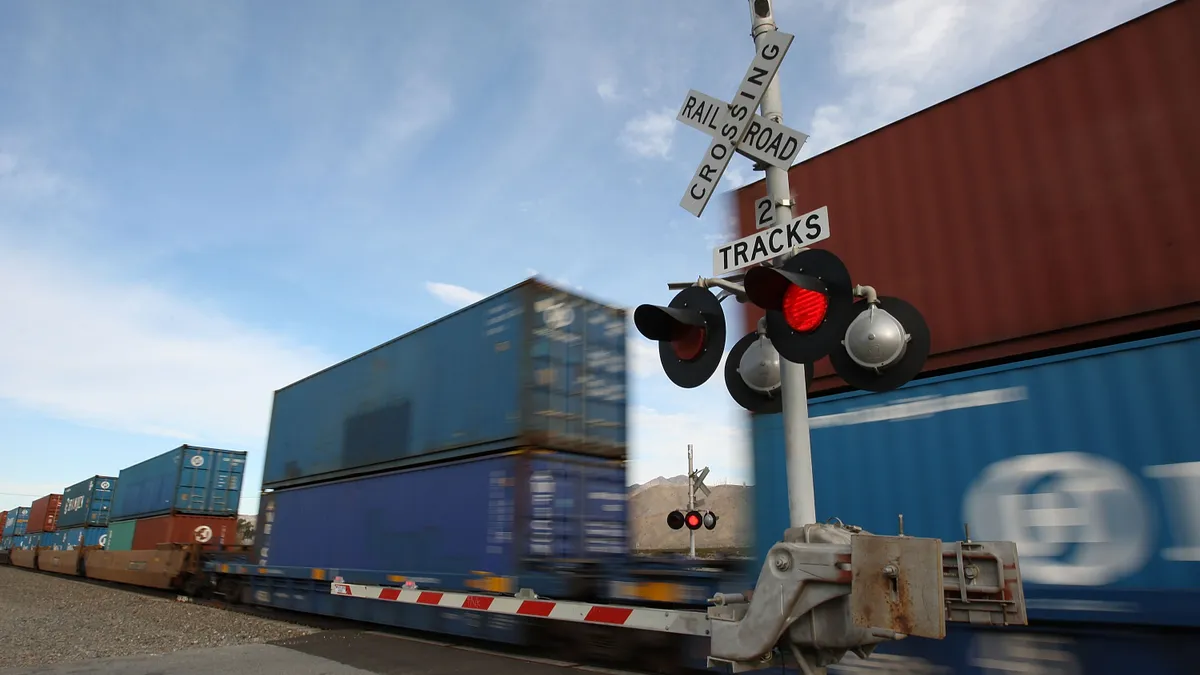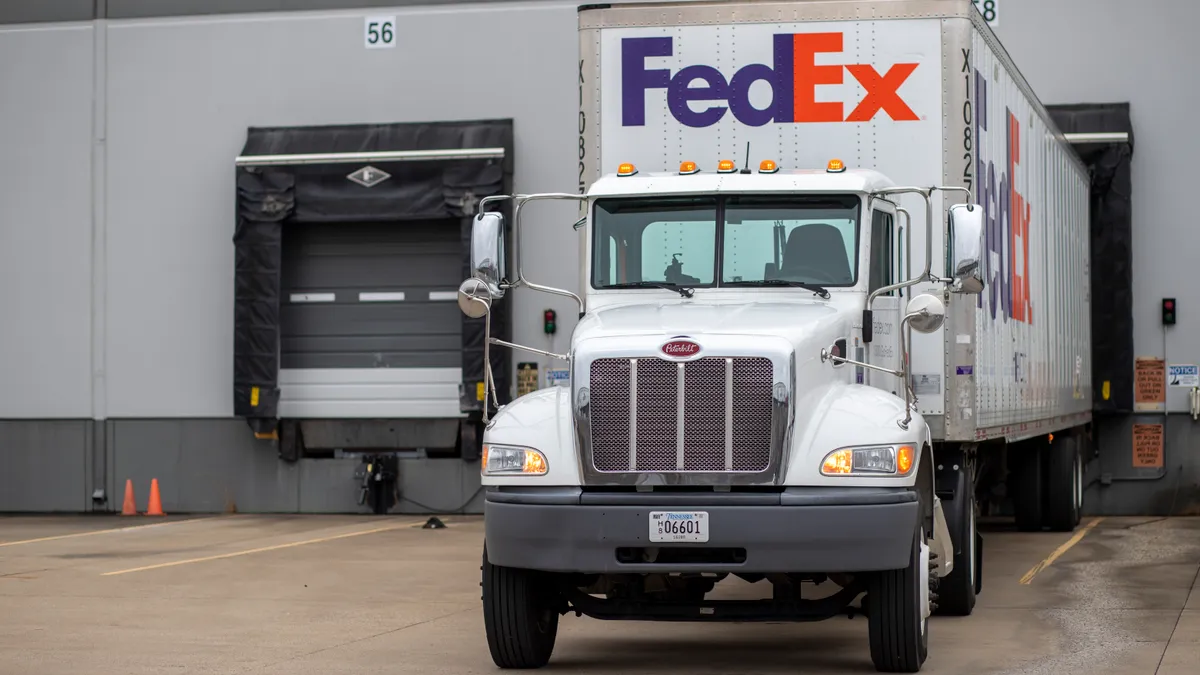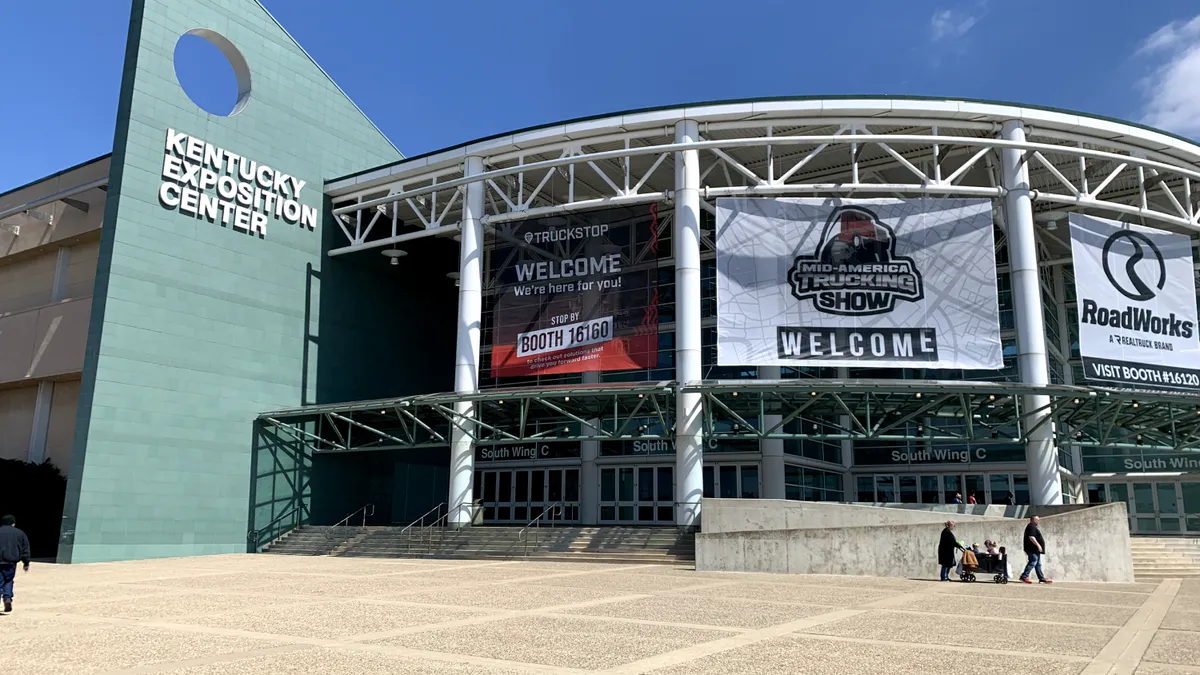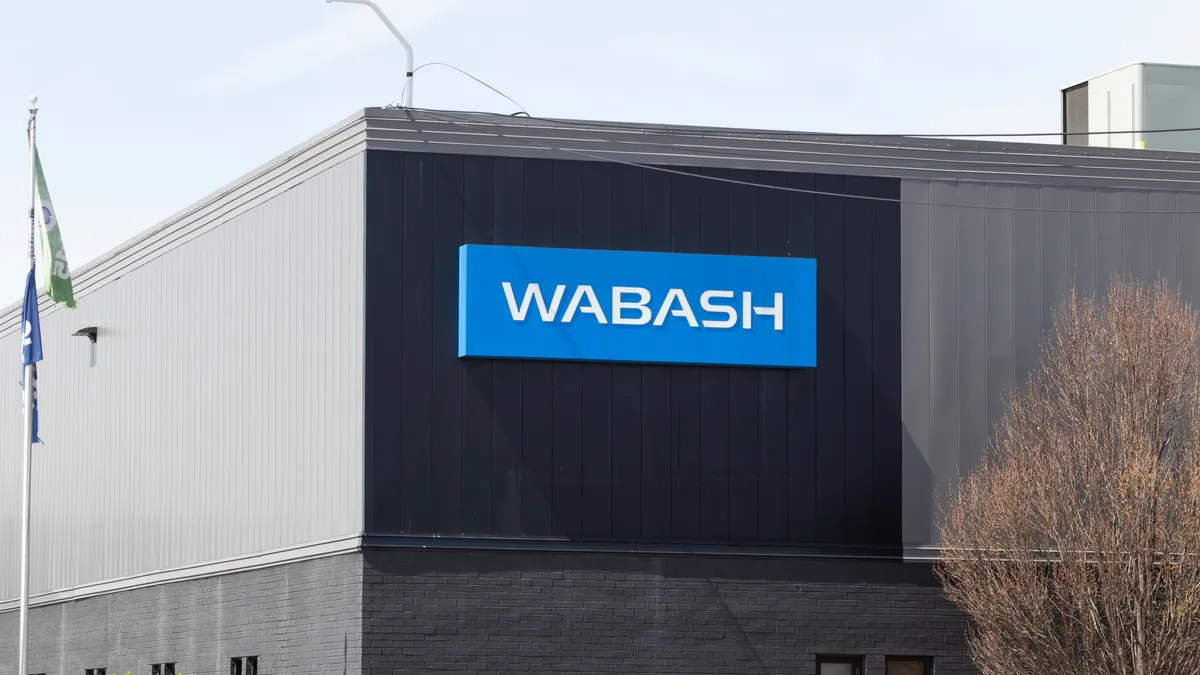Bulldog Hiway Express President and CEO Philip Byrd remembers when trucking fleets and railroads were in fierce competition for freight. Not anymore.
With this year’s holiday’s approaching, the South Carolina-based fleet executive dreaded a rail strike. He said it would have hurt his operations because Bulldog Hiway hauls about 700 shipping containers of pharmaceuticals, auto parts and other cargo each day to rail yards from the Port of Charleston alone.
“My business can’t be successful without a good rail system,” he said in an interview with Transport Dive Monday. “We pick up at ports and deliver to the rail lines. They do an intermediate run to an inland location. We intercept that cargo and continue on to a destination. That's just the way the infrastructure and the network is built today.”
The former American Trucking Associations chairman joined other trucking leaders in expressing relief about the federal government’s action to prevent a railroad strike projected to cost $2 billion a day. Trucking’s broad support for the intervention on railroads’ behalf underscores the two industries’ symbiotic relationship.
But the law passed by Congress and signed by President Joe Biden was bittersweet, Byrd said: In preventing a strike, the government imposed a labor contract on rail workers without addressing their concerns about sick leave. That brought harsh criticism from workers’ unions and advocates.
“We have to listen and respond and be respectful to their concerns,” Byrd said. “When you demand that their concerns are quieted and they must continue to work with grievances that go unsatisfied, I'm not sure if that's the healthiest environment for us to operate in.”
Four rail unions, including the largest, had voted down their contracts over a lack of paid sick leave days, arguing they are unable to receive time off in the case of a cold or flu. The Senate lacked the votes to include the paid sick leave provision before passing the law last week.
“I would’ve rather seen [workers and management] come to the table of negotiation and hammer it out and work out some mediation that would have benefited both sides,” Byrd said. “The workers of the rail system could have gone back to work motivated, uplifted and ready to produce ... rather than feeling like a bit of wind’s been knocked out of their sail and they’re back at work with the same grievances.”
An interruption in rail service would have made truck drivers’ lives more difficult. The Owner-Operator Independent Driver Association was pleased at the aversion of a potential strike that threatened to cause major supply chain disruptions, President Todd Spencer said in a statement.
“Truckers were prepared to step up to help minimize any impacts on the American people,” Spencer said. “As we have seen countless times, the perseverance of the nation’s truck drivers has never faltered in the face of difficult challenges.”
Any rail strike would be “disastrous” and “catastrophic,” American Trucking Associations President Chris Spear said in a statement issued after Congress sent the law to the president’s desk. The trucking industry alone “has neither the equipment nor the manpower to replace a single day of lost freight service.”
Trucking and railroads have evolved into complementary transportation options, Spear said. Hospitals, businesses and residents depend on freight rail and trucking for daily necessities, and trains carry critical goods such as hazardous materials and fuel — “including diesel which is already in short supply in numerous parts of the country.”
“There is no way the trucking industry can replace all the rail freight,” Spear said. “We appreciate Congress stepping up and ensuring that the nation’s wheels – be they steel or rubber – keep moving.”
Bulldog Hiway Express’ operation in Charleston, where it is headquartered, demonstrates how intertwined trucking and rail carriers have become.
Its drayage operation hauls loaded shipping containers from the Charleston docks to nearby rail yards. Freight trains carry them to inland ports in Darlington, in South Carolina’s Pee Dee region, and Greer, in the Upstate.
Then, more Bulldog Hiway Express trucks arrive to haul the cargo to its final destination. The system works for Byrd.
“It's an efficient way to operate,” he said. “Takes a lot of traffic off of our already burdened and crowded highway system.”
Byrd hopes the railroads will find a way to address worker concerns.
“I'm glad [they are] not striking,” he said. “But I hope the rail workers’ voices are heard and remedy comes to them.”





















